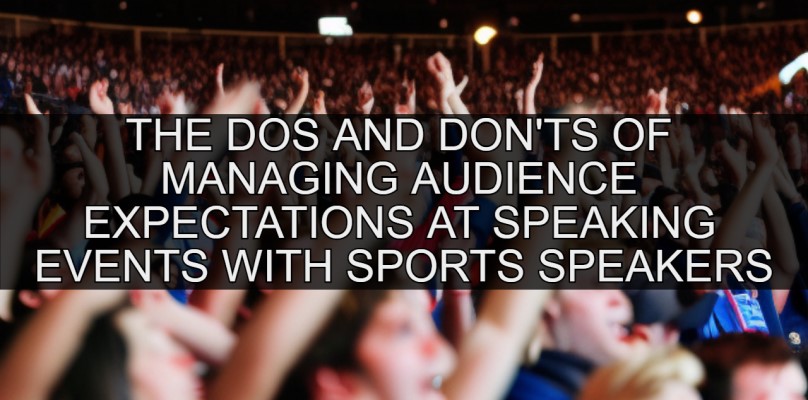
Introduction:
Hosting speaking events with sports speakers offers a unique opportunity to inspire and engage audiences with compelling stories and insights. To ensure a successful event, managing audience expectations is key. In this blog, we will explore essential dos and don'ts that event organizers should keep in mind when hosting speaking events with sports speakers. By setting clear expectations and creating an enriching experience, you can leave a lasting impact on your audience and elevate the success of your event.
Dos:
Thoroughly Research Sports Speakers:
Before selecting a sports speaker, conduct comprehensive research to understand their background, expertise, and speaking style. Choose a speaker whose experiences align with your event's theme to ensure relevance and engagement.
Clearly Define the Event's Purpose:
Set clear objectives for your event and communicate the purpose to your audience. Whether it's to inspire, educate, or entertain, clearly defining the event's goals helps manage audience expectations and enhances their overall experience.
Communicate the Format and Duration:
Inform your audience about the event's format and duration. Whether it's a keynote speech, Q&A session, or interactive workshop, providing a clear schedule helps attendees prepare and engage accordingly.
Encourage Audience Participation:
Sports speakers often have fascinating stories and insights to share. Encourage audience participation by incorporating opportunities for Q&A sessions or interactive elements, fostering a dynamic and engaging atmosphere.
Align Content with Audience Interests:
Collaborate with the sports speaker to tailor their content to resonate with your audience's interests and preferences. Understanding your audience's demographics and expectations ensures that the speaker's message is well-received.
Don'ts:
Overpromise or Misrepresent:
Avoid making unrealistic promises or misrepresenting the sports speaker's expertise. Being transparent about what your audience can expect will build trust and prevent disappointment.
Neglect Sound and Technical Requirements:
Ensure that the venue's sound and technical setup are appropriate for the event. Neglecting technical requirements can lead to distractions and hinder your audience's overall experience.
Overwhelm the Schedule:
Avoid cramming the schedule with too many activities or speakers. Allow sufficient time for the sports speaker to connect with the audience and convey their message effectively.
Ignore Feedback and Surveys:
Collect feedback from attendees after the event to gauge their satisfaction and identify areas for improvement. Ignoring feedback may lead to missed opportunities for enhancing future events.
Overlook Event Logistics:
Pay attention to event logistics, such as seating arrangements, accessibility, and registration processes. Smooth event logistics contribute to a positive audience experience.
Conclusion:
Effective management of audience expectations is crucial for hosting successful speaking events with sports speakers. By following the dos and don'ts outlined above, event organizers can ensure that attendees leave feeling inspired, informed, and thoroughly satisfied with their experience. A well-executed event not only benefits the audience but also contributes to the sports speaker's impact and influence in the industry.




